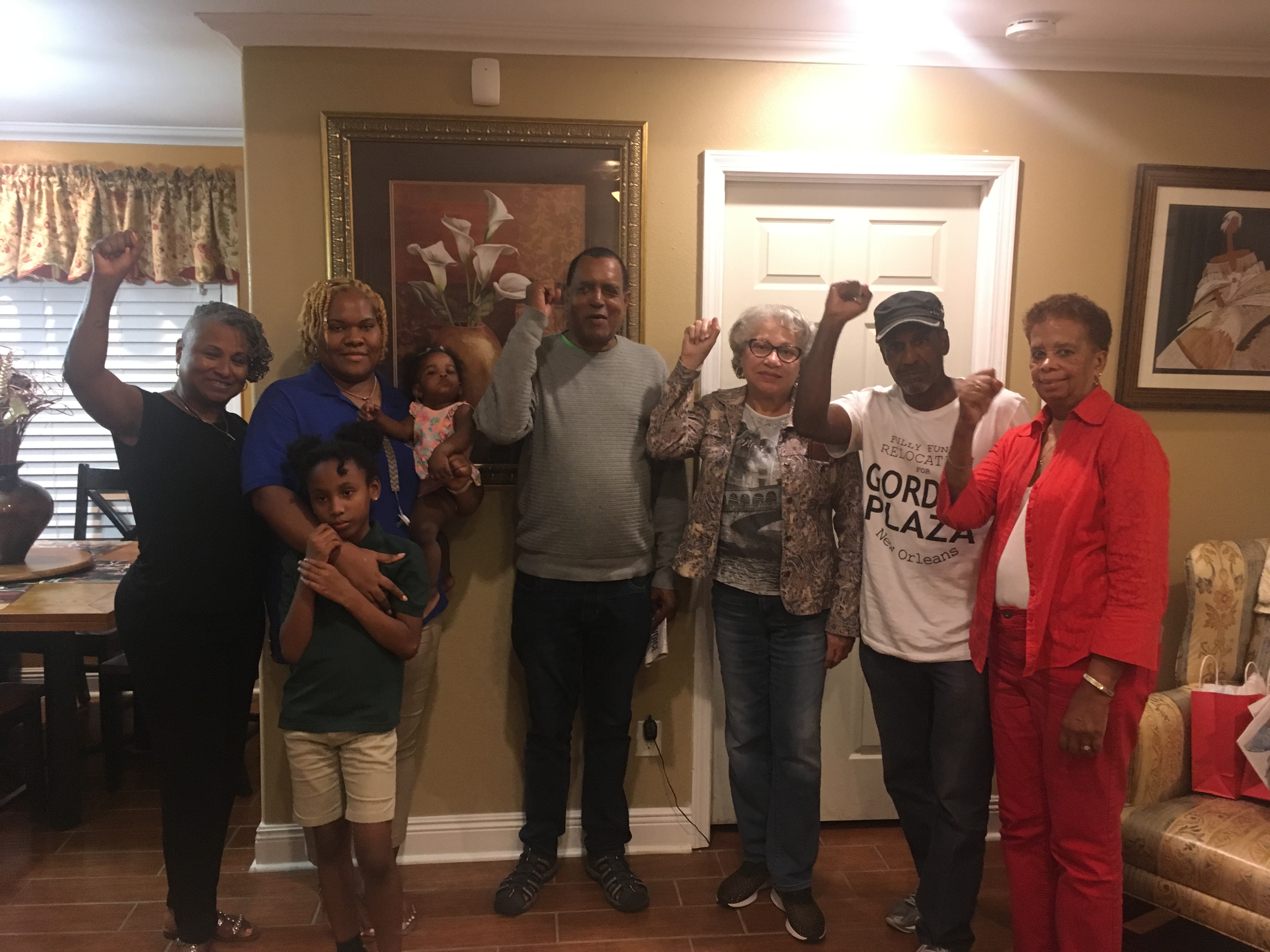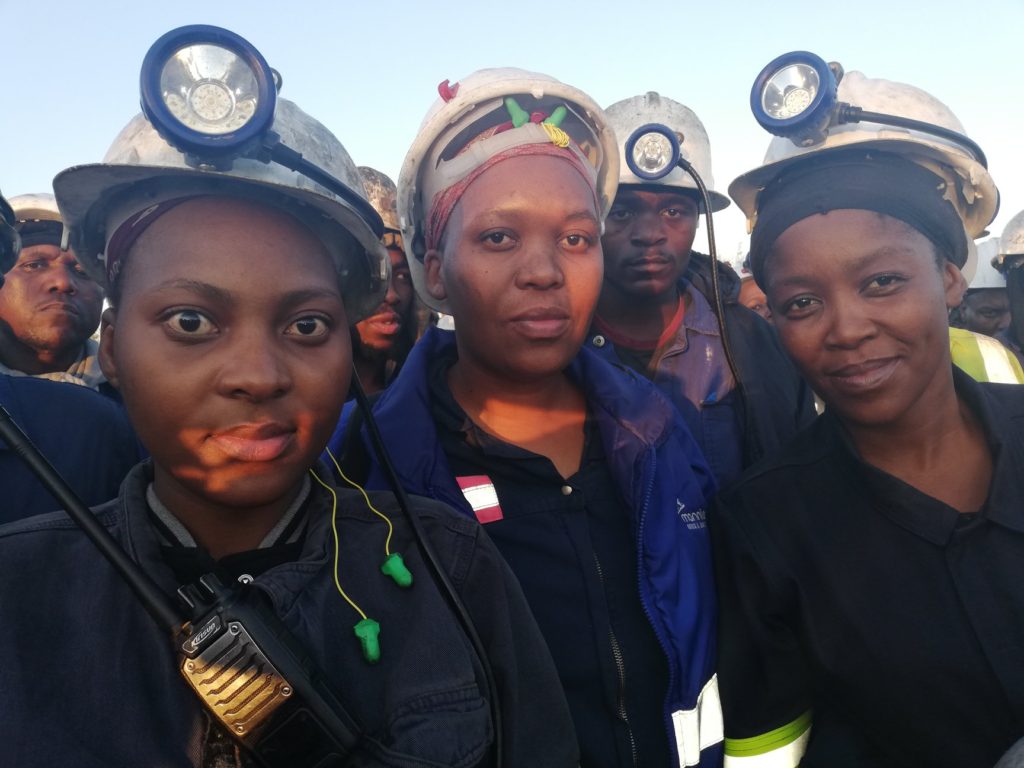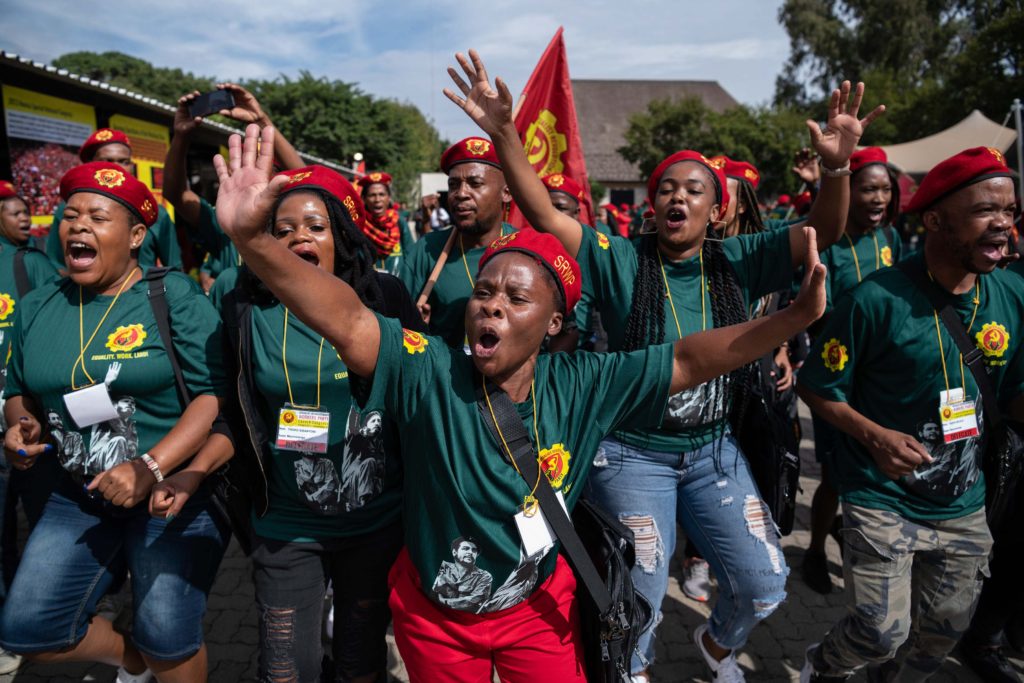
By Sanashihla
On September 18, residents of Gordon Plaza were able to break bread together, and exchange experiences with environmental activist Desmond D’Sa, of South Africa. Residents of Gordon Plaza told D’Sa about their decades long struggle for a fully funded relocation off of the toxic soil that the city of New Orleans built their homes on.
D’Sa shared with the residents the many ways in which our struggles are local AND global, and he cited many examples of actual wins that demonstrated people power. The working class people who are organizing and fighting on the front lines in South Africa have been able to shut down over 40 harmful chemical plants and win improved conditions and social services for workers.
D’Sa made it clear that the struggle was not simply about winning single issue fights, but about ensuring that each win was connected to a broader fight for freedom from the cause of the crisis that we contend with. Capitalist exploitation of workers’ labor, and the pursuit of expansion and profits are not concerned with the future or the health of humanity. Why? Because each crisis gets turned into an opportunity for disaster capitalists. For every sickness that exists, there is someone waiting to prey on the sick, to charge a fee for the repair or the remedy. Disaster capitalism feeds on the desperation, trauma and despair of wounded people.
D’Sa also spoke specifically about the ways in which the environmental movement ought to be in full solidarity with the workers movement. Workers have power! He spoke of the necessity to build across geographical lines, and struggles, and rise up to fight collectively. “Don’t fight alone. Go together!”, D’Sa said.


